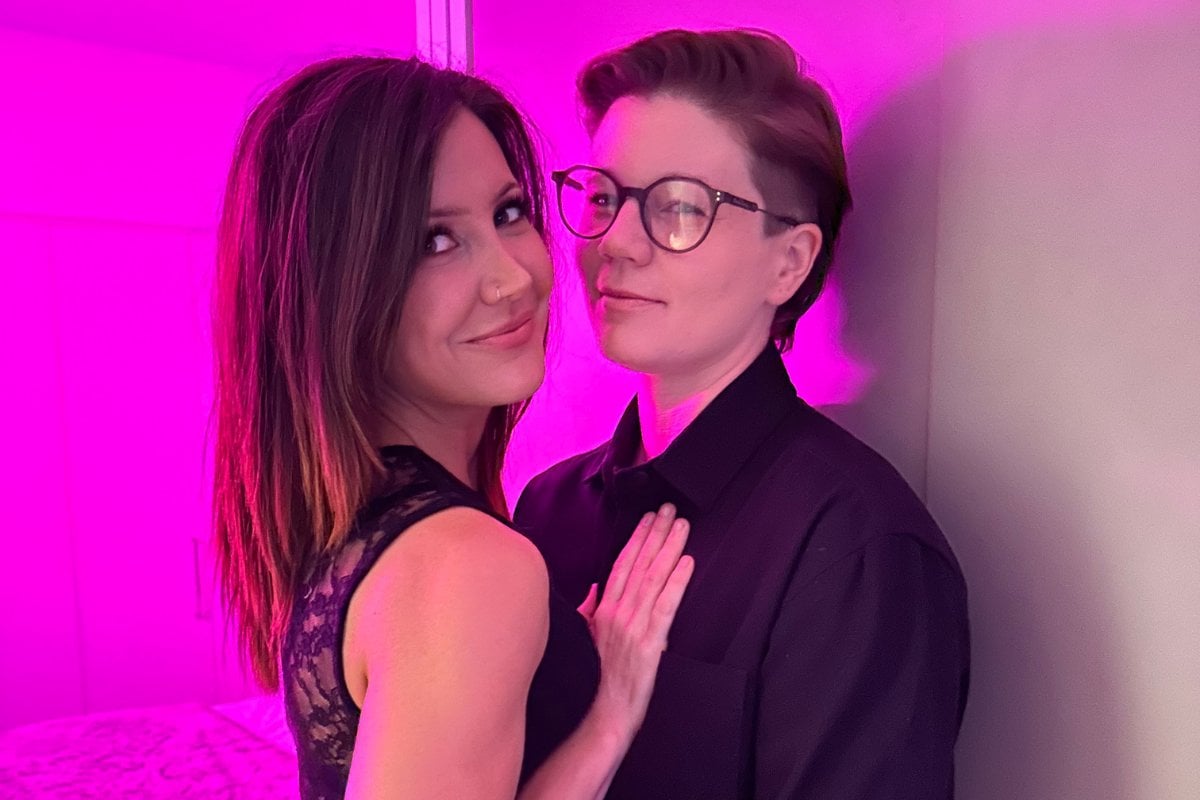
If you clench your fist really tightly for a minute, you can witness a psychological phenomenon in real time.
Maintaining the position is initially torturous, but after 45 seconds or so, the pain magically dissipates.
What’s really interesting though, is what happens when you try to release it. It’s surprisingly difficult.
Relaxing your hand hurts almost more than it did to clench it in the first place, because it’s (temporarily) become your body’s new preferred homeostasis.
This is kind of how compulsory heterosexuality – more commonly known as comphet – works.
Though it’s neither a natural nor comfortable construct for a lot of people, we’re so accustomed to living our lives by it, it can be easy to forget it’s there.
Okay, so what’s comphet?
Simply put, comphet is the idea heterosexuality is treated as a default setting in our culture – women are expected to be sexually attracted to men.
We're reminded of this in constant, insidious ways, from the fairytales we grow up having read to us, to rom-coms, song lyrics, and never-ending questions about whether we have boyfriends or husbands (questions that start disturbingly early, when adults coo, “Is this your boyfriend?” to little girls who befriend boys).
The message we hear on repeat, is that our lives are bereft of meaning until they’re attached to men.
And this narrative compels women – and by extension, femme and non-binary people – to centre our existence around men without pausing to ask ourselves whether we genuinely want to be with a man, or if we’re just doing it because it’s something we’ve been told to do.

Top Comments